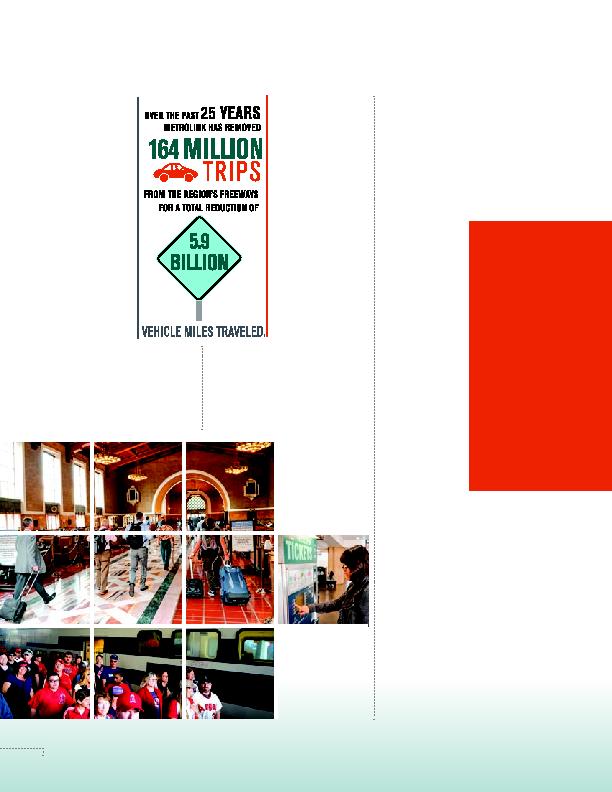
AUTOMOBILE TRIPS
OFF LOCAL ROADS,
AND THAT NOT ONLY
REDUCES TRAFFIC
CONGESTION BUT
ALSO MINIMIZES THE
ENVIRONMENTAL
IMPACTS TO OUR
COMMUNITIES."
OF MOBILITY 21
the era of freeway
construction is
nearing an end
so the only way
to relieve traffic is
through Metrolink.
public investment,"
Leahy says noting,
the average
construction cost
per mile of Metrolink
track is $8 million
compared to $30
million per mile
of new freeway,
assuming space is even found to
build new freeway. Moreover, 44
percent of Metrolink trip costs
are covered by riders and other
sources such as fees paid by freight
operators to Metrolink for dispatching
services, the highest among public
Southern California.
of the multimodal
solution to address
traffic congestion
and mobility in
Southern California,"
notes Stephen
Finnegan, manager
of public and
government affairs
with the Automobile
Club of Southern
California. "To work
well, our region
needs both better
options for commuters and other
travelers."
Mobility 21, Southern California's
transportation advocacy coalition,
takes 8.7 million annual automobile
trips off local roads, and that not only
reduces traffic congestion but also
minimizes the environmental impacts
to our communities."
Metrolink Riders
loves Metrolink
riders. By not
driving solo to
work, the average
Metrolink commuter
reduces his or her
C02 emissions by
eight tons a year.
That's equal to
about a 35 percent
reduction in all
greenhouse gases
produced by a
typical two-adult,
two-car household.
exist in the past
quarter century,
more than 2.7 million metric tons of
additional greenhouse gas emissions
would have been spewed into the
atmosphere. Couple that with energy
savings nearly 310 million gallons
of fuel saved.
carbon footprint. Its new Tier 4
locomotives -- the first have just been
ushered into service -- will reduce
emissions by up to 85 percent over
standard diesel engines. When all
40 of these Tier 4 locomotives are
operating, it will be equivalent to
reducing the annual emissions of
31,320 vehicles.